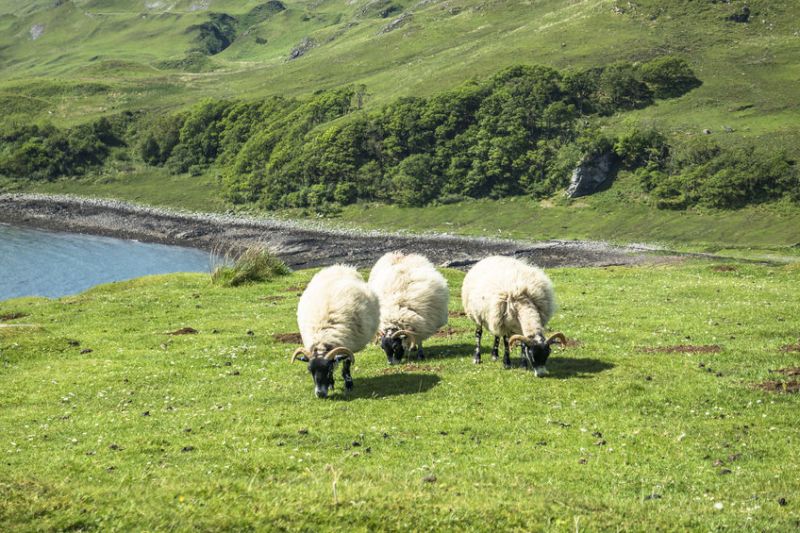
Sheep farmers have urged the National Trust to use wool as an alternative to its synthetic fleeces which are worn by its 10,000 employees.
The charity, which protects more than 248,000 hectares of land, is currently seeking material alternatives for its fleeces as concerns rise over synthetics and their harm to the environment.
Such material sheds hundreds of thousands of plastic microfibres every time they are washed, often ending up in waterways and harming wildlife.
As the Trust looks for alternatives, farmers have latched onto this opportunity to promote the sustainable qualities of British wool.
The National Sheep Association (NSA) is encouraging the National Trust to use wool as its new fleece or alternative garment materials.
It is emphasising the animal welfare reasons behind shearing following suggestions from animal rights groups that shearing sheep is cruel.
'Most sustainable fibre on earth'
The group has now written to the National Trust encouraging it to consider wool as a viable product for its fleeces due to it being 'renewable, natural and reliable'.
NSA Chief Executive, Phil Stocker said wool is the 'most sustainable fibre on earth' and is the 'ultimate' product in renewable technology.
“It seems ironic that we call that garment – the fleece – after a sheep fleece yet most ‘fleeces’ are manufactured from plastic materials and when washed contribute to polluting our oceans and environment,” he said.
“The truth is that British wool has largely become a by-product from sheep farming. Although there are specialist wool producers that buck the trend, most of the wool is shorn in the early summer to improve the welfare of the sheep and to prevent flies laying their eggs within the fleece and causing serious welfare problems.”
Mr Stocker added: “Wool grows back naturally and by the winter the sheep has a well-insulated and protective weather proof coat. It seems to me that the interests and philosophy of the National Trust align perfectly with the properties of British wool.”
'Boohoo'
This message follows criticism of fashion companies such as ‘Boohoo’ who recently stated they would be removing all items containing wool from sale.
However, days after the initial move, the company reversed their decision following condemnation from the sheep industry as well as a wide group of consumers.
Some farmers even invited representatives of the retailer to visit their farm to see the processes behind wool first hand.
Mr Stocker said some organisations make 'rash and uniformed' decisions without properly observing the processes behind the British sheep industry.
